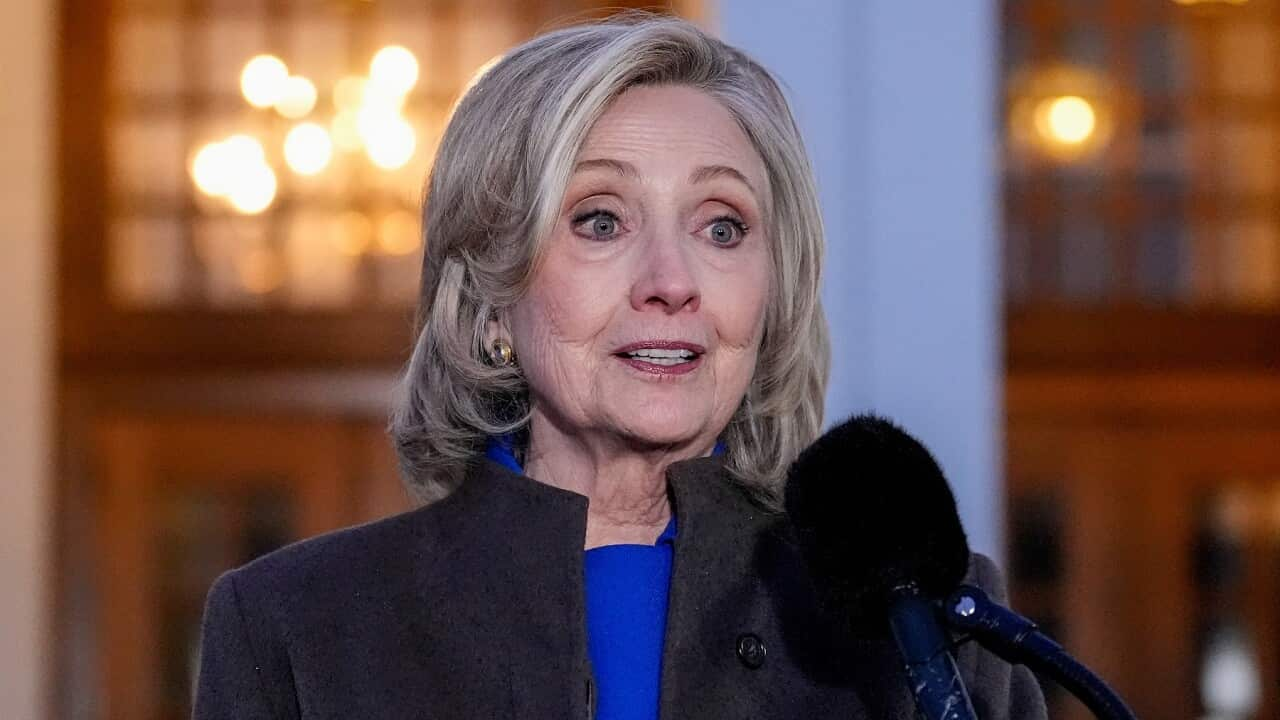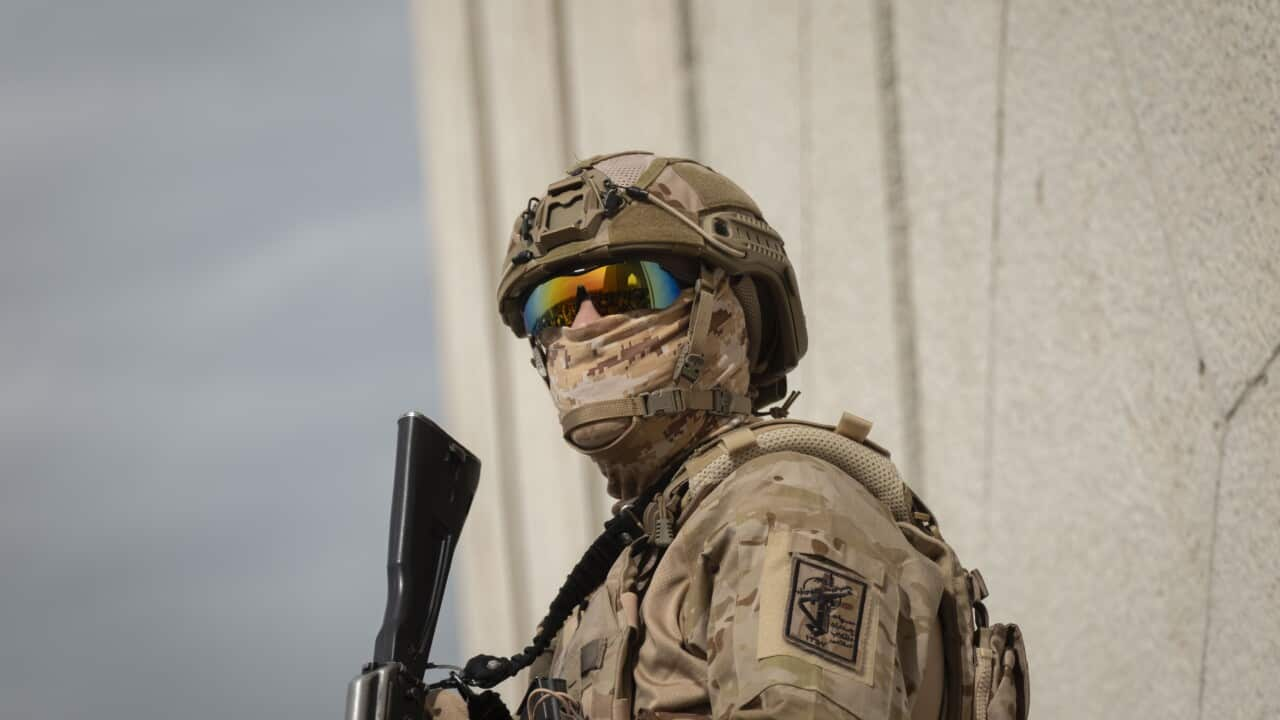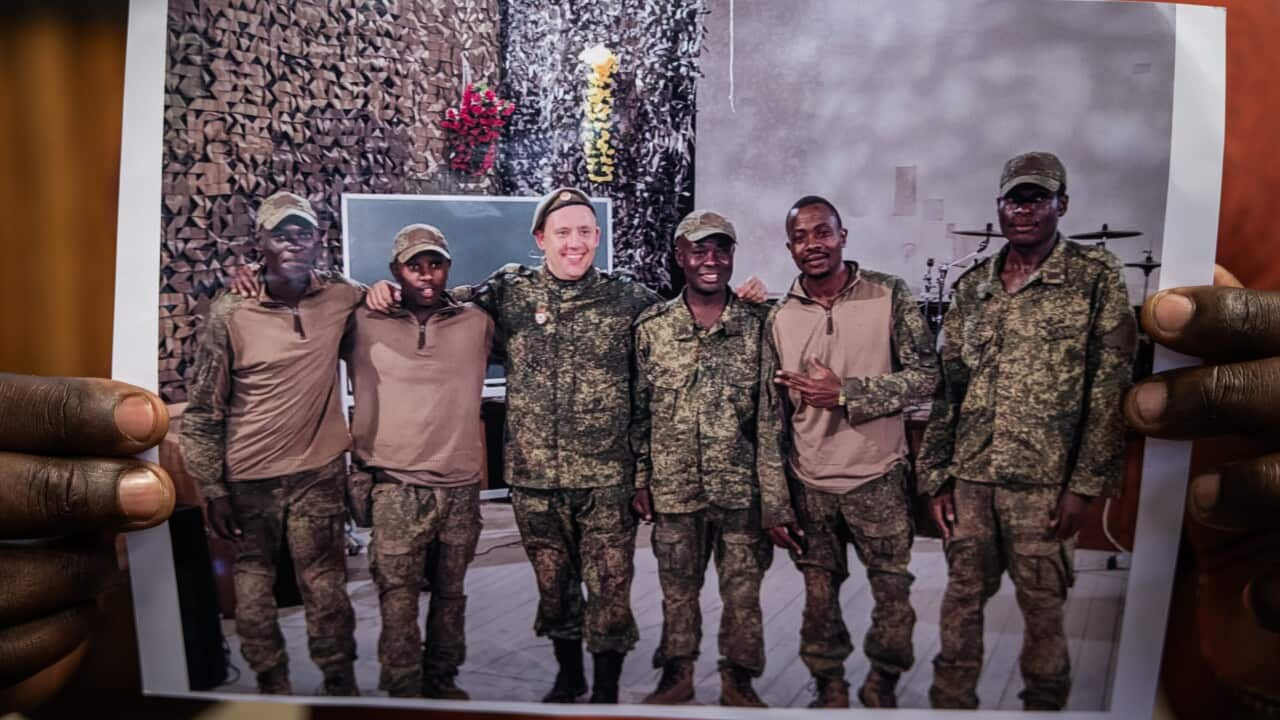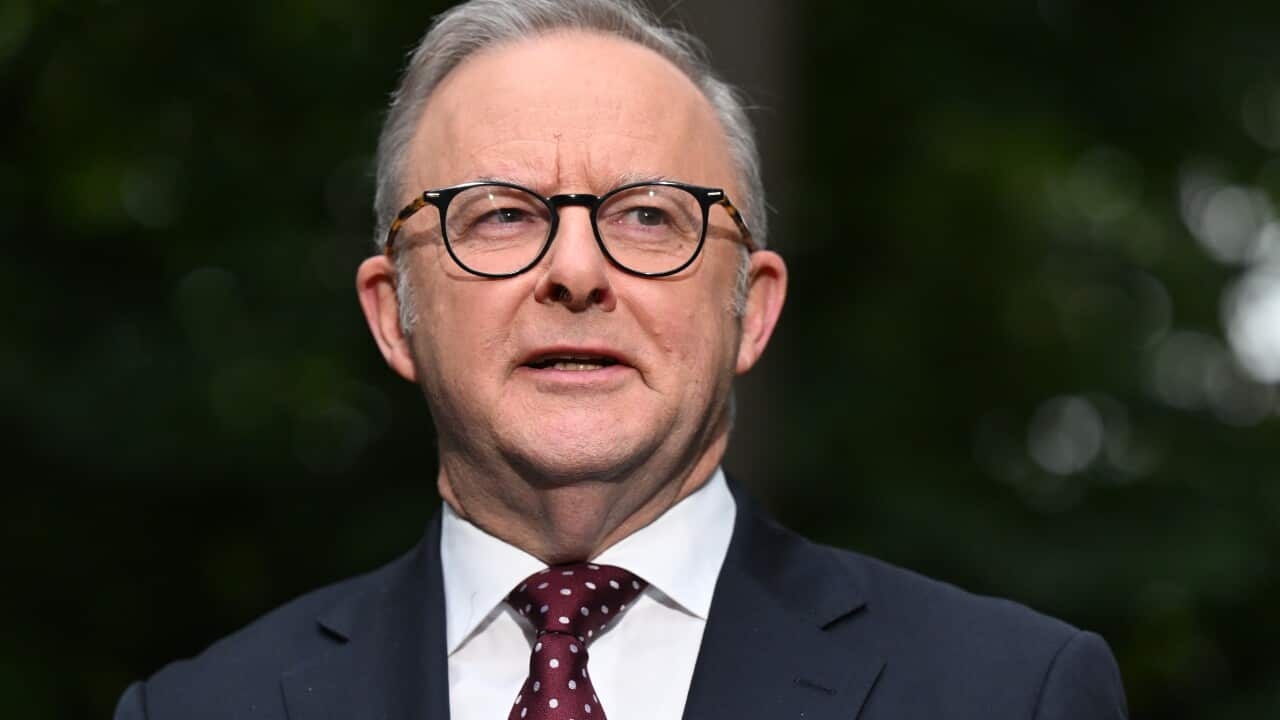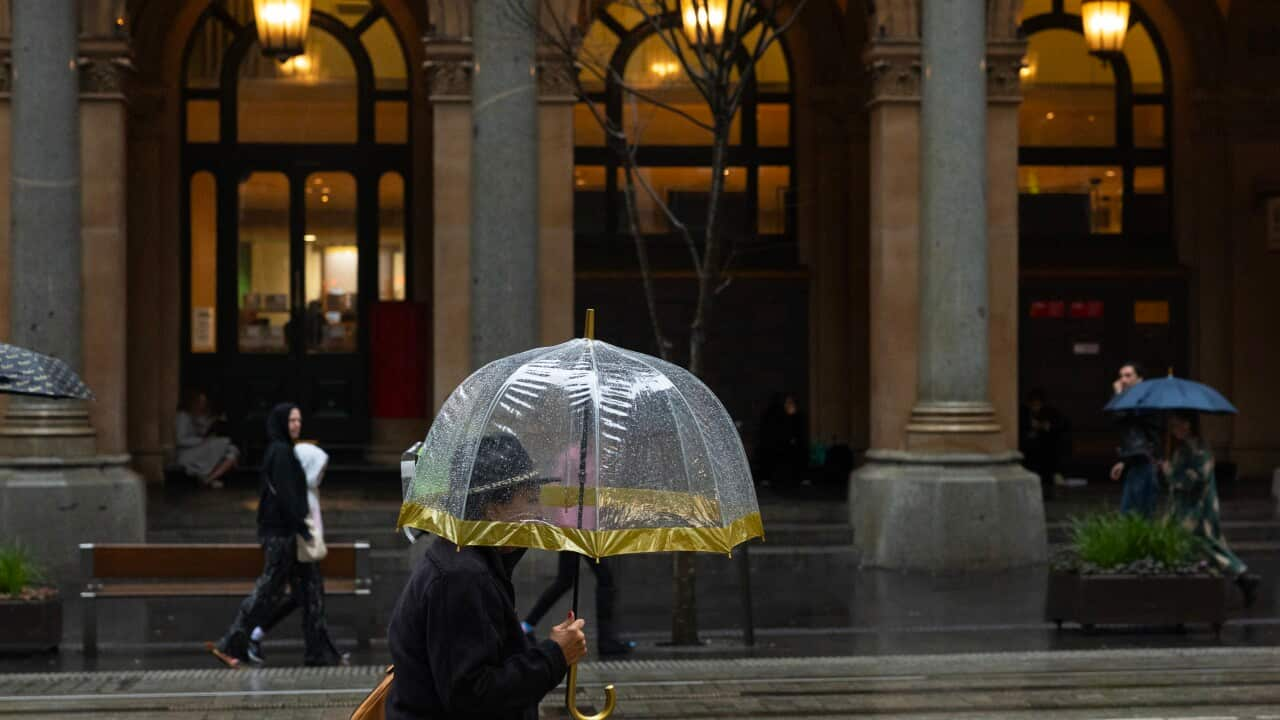Listen to Australian and world news, and follow trending topics with SBS News Podcasts.
TRANSCRIPT
Prayer, feasts, and family gatherings.
Muslims in Australia and around the world are now celebrating one of two key festivals in the Islamic calendar, Eid al-Adha.
It's a celebration which involves the sacrificing of an animal, generally a lamb, a goat or a cow; and then a sharing of the food to friends, family and those living in poverty.
"We celebrate the Eid by first in the morning go to praying. It's called Eid al-Adha praying. Then I personally cook Indonesian traditional food and I give that food to my friends in the college or my housemate."
That's Indonesian-Australian man Miftahuddin who is celebrating Eid in the Sydney suburb of Lakemba.
He says, to him, Eid al-Adha is a time to demonstrate his love to God.
"Eid is a symbol of a sacrifice. Everyone now, they pay some amount buying sheeps or cows and they give those animals for God, for Allah."
This sacrifice of animals pays respect to a story in the Quran, the Christian Bible and the Torah, that of Ibrahim - also known as Abraham - being willing to sacrifice his own son for God.
For Egyptian-Australian woman Sahar Badawe, she tells SBS Arabic that her community always celebrates the holiday with the dish fatteh.
"The Eid al-Adha breakfast is always a dish called Fatteh in Egypt consisting of lot of meat and yoghurt. You can’t celebrate Eid Adha without enjoying this special breakfast, even though it’s usually a meal suited for lunch time as it’s rich."
But for some Muslim migrants, they've found the Eid experience in Australia to be more difficult to navigate balancing tradition with everyday work routines.
With Eid Al-Adha not officially recognised as a public holiday, many families in Australia celebrate around their jobs and school schedules.
Community events and weekend gatherings can help keep the spirit alive, but Jordanian-Australian Rania Irani told SBS Arabic it’s not quite the same.
"We don’t really feel the spirit of Eid here, to be honest. Everyone goes about their day as usual. My two sons both have to work and don’t get a day off, so we can’t even go out together. We’ll meet friends on Saturday, but still, it’s not like celebrating in our home country, surrounded by family."
The Eid festival also coincides with the annual Hajj pilgrimage to Mecca in Saudi Arabia.
Pilgrims typically perform the tawaf on Eid, walking seven times around the Kaaba, which is the holiest site in Islam and is said to have been built by the prophet Ibrahim and his son.
One worshipper, Zainab Loo, says the once-in-a-lifetime pilgrimage has been indescribable.
"I don't know if I can describe really what I feel because it's really great. We are praising Allah for whatever he has given us and what we hope to have here and thereafter. So what we feel is really great."

